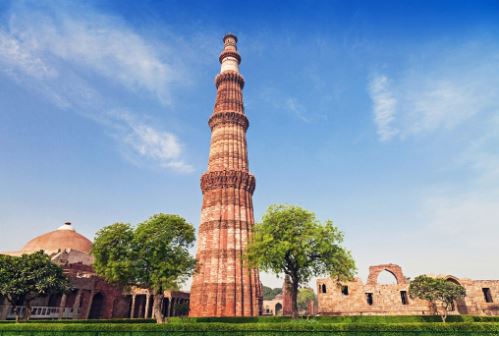A Delhi court on Thursday refused to hear a civil suit which sought the restoration of 27 temples forming the temple complex in Mehrauli. The petition alleges that the Quwwat-Ul-Islam Masjid situated near the Qutub Minar Complex in Mehrauli was built in place of the said temple complex comprising 27 temples. The civil suit is filed on behalf of Jain deity Tirthankar Lord Rishabh Dev and Hindu deity Lord Vishnu.
Civil Judge Neha Sharma noted that the plaintiffs (Jain deity Tirthankar Lord Rishabh Dev and Hindu deity Lord Vishnu) have no absolute right to restore and worship in the property as public order which is an exception under Article 25 and 26 of the Constitution. This requires status quo be maintained and the protected monument be used for no religious purpose. It is also an established fact that Quwwat-Ul-Islam Masjid was built atop existing temples but the property was not being used for any religious purposes and no prayers were being offered here.
The Court noted that under the provisions of the Places of Worship Act 1991, the present suit was barred and the plaint was rejected under Order 7 Rule 11(a) of Civil Procedure Code (CPC) as the cause of action was not disclosed. While dealing with the suit, the bench said that once a monument has been declared as a protected property by the Government then the plaintiffs cannot insist that it should be used for any other purposes.
Civil Judge Neha Sharma noted that in India’s rich history, it has been ruled by several dynasties and the counsel for plaintiff has argued pointing it to be a national shame. Historical wrongs cannot be made a ground to disturb the present peace or in the future.
Passages from Ayodhya Verdict were also mentioned during the proceedings which upheld the validity of the Places of Worship Act.
The Court observed that historical or ancient monuments cannot be used for the purposes which counters the nature as religious place of worship. However, the place can be used for other purpose which are not inconsistent with the religious factor. Hence the protected monuments are owned by the government.
It was further noted that India has rich history and has also seen very challenging times, the history has to be accepted as a whole and not in bits and pieces where the good is kept and the bad are discarded from history. The main objective behind the Places of Worship Act, 1991 is the harmonious interpretation of both the statutes.
Also Read: Uttarakhand HC issues notice on PIL against irregularities committed by former directors of BTKIT
The plaintiffs here relied upon Section 16 of the Archaeological Monuments and Archaeological Sites and Remains Act which permits to continue worship of the religion which maybe in consonance with the character of the building. However, the Court held that this provision has to be read in consonance with the Places of Worship Act, 1991.
The plaint alleged that around 27 Hindu and Jain temples were desecrated and damaged in 1198 under the rule of Slave Dynasty Emperor Qutub-Din-Aibak raising the construction of the said mosque in place of those temples.


